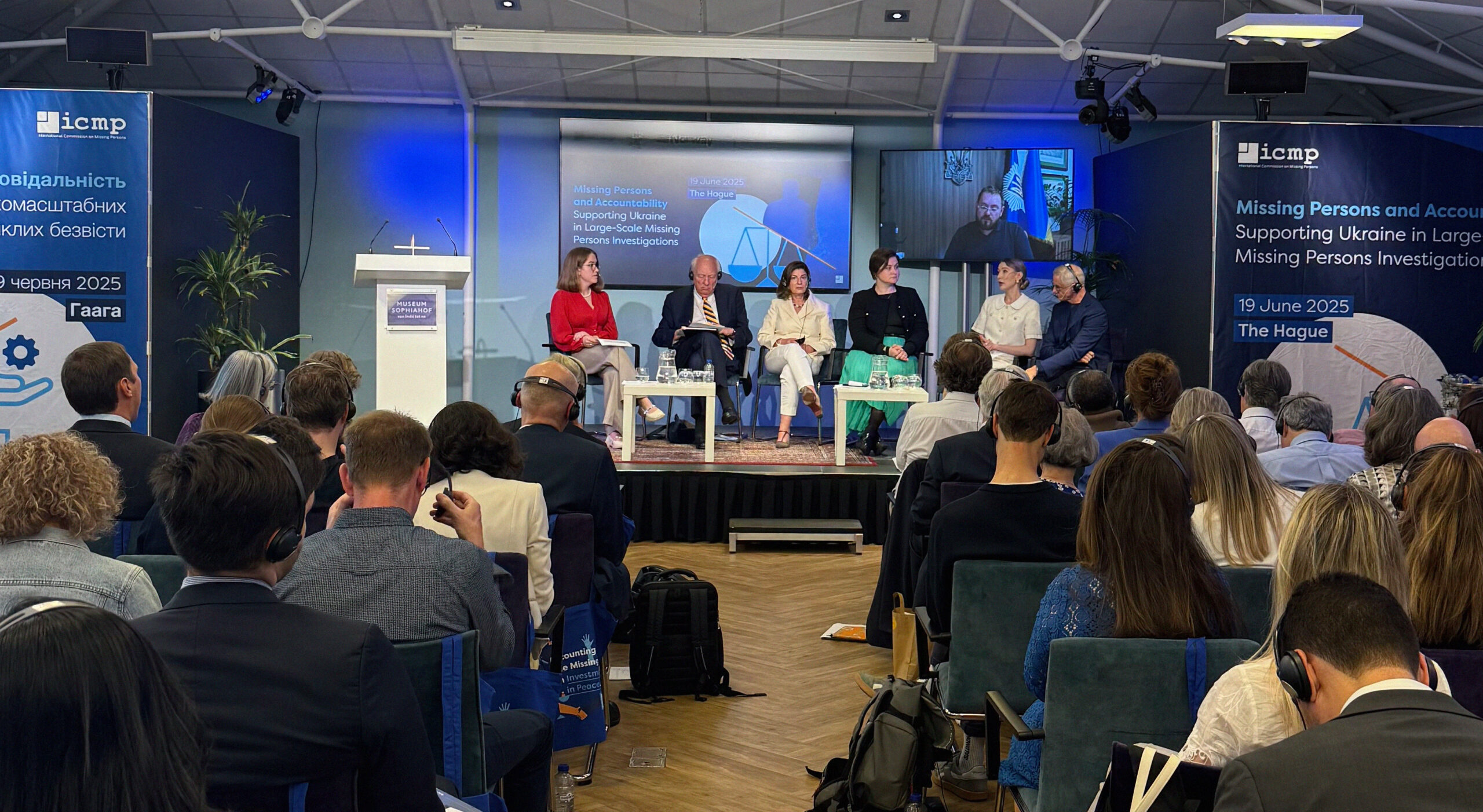Oleksandra Romantsova spoke at the discussion “Missing Persons and Accountability: Supporting Ukraine in Large-scale Investigations of Missing Persons” in The Hague

On June 19, an expert discussion “Missing Persons and Accountability: Supporting Ukraine in Large-scale Investigations of Missing Persons” was held in The Hague, in which Oleksandra Romantsova, Executive Director of the Center for Civil Liberties, took part. The event was part of a large-scale conference organized by the International Commission on Missing Persons (ICMP).
Ukrainian and international experts, government representatives and human rights activists took part in the discussion, which was dedicated to supporting large-scale investigations into the cases of people who went missing as a result of the Russian invasion. Speakers discussed how Ukraine is striving to fulfill its human rights obligations by investigating individual disappearances while working to find large numbers of missing persons in difficult circumstances. They also looked at ways in which judicial processes can support large-scale investigations into disappearances.
Artur Dobroserdov, Commissioner for Persons Missing in Special Circumstances of the Ministry of Internal Affairs of Ukraine, emphasized that since May 2023, Ukraine has had a Unified Register of Persons Missing in Special Circumstances, which currently contains information on more than 70,000 people: “The register also contains a separate section on unidentified human remains, which emphasizes the scale and complexity of this problem. This centralized system is crucial for tracing missing persons, supporting investigations and ensuring accountability.”
In addition to Mr. Dobroserdov and Ms. Romantsova, the discussion featured presentations by ICRC Director General Kathryn Bomberger, Head of the War Crimes Investigation Department of the Office of the Prosecutor General of Ukraine Yuriy Belousov, legal expert at the Regional Center for Human Rights Dr. Kateryna Rashevska member of the UN Independent Commission of Inquiry on Ukraine Vrinda Grover, former US Ambassador-at-Large for Global Criminal Justice Stephen Rapp, former head of research at the US Army DNA Identification Laboratory (AFDIL) and former ICRC Director of Science and Technology Dr. Thomas Parsons.
“Given the difficult situation in the process of searching for missing persons, which occurred due to the full-scale aggression of the Russian Federation against Ukraine, we must recognize that the Ukrainian national legal mechanism for searching for missing persons (MZ) has proved to be completely unsuitable for processing the sharp increase in the number of missing persons as a result of the war. In fact, Ukraine’s model of search is designed for peacetime and places the main burden on investigative bodies and criminal investigations. It is more like a process of investigating a crime, searching for and bringing a criminal to justice, where the task of finding a missing person is secondary.
The main goal of our proposals for reforming the current national system of searching for combatants is to focus on the needs of ordinary people who, unfortunately, have faced the problem of their loved one being a combatant. One of the main pillars of our proposals is the creation of a “single window” for the families of combatants. A single window for families’ appeals will facilitate better communication with the responsible authority and protect families from the need to contact every authority in Ukraine involved in the search process, which redirects them to a neighboring authority or does not provide relevant information,” said Oleksandra Romantsova.
This roundtable was the fifth in a series of events organized by the ICRC to address issues related to cases of missing and enforced disappearances as a result of the Russian invasion. The first meeting in Kyiv in May 2024 focused on the institutional and legislative framework. Subsequent meetings discussed the role of forensic examination and databases (Warsaw, June 2024), the abduction and deportation of Ukrainian children (The Hague, June 2024), and reparations for families of missing persons (The Hague, organized jointly with the Register of Damages for Ukraine, April 2025). At all roundtables, participants emphasized the need for thorough, human rights-based investigations that would provide evidence admissible in court, enable reparations and lay the groundwork for lasting justice.

